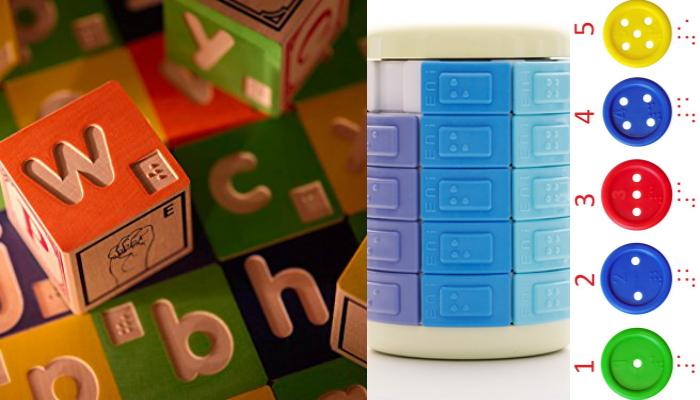Breastfeeding & Bonding with Your Visually Impaired Infant

Until not very long ago, you and your new baby were two souls sharing one body; his tiny immature organs were getting major assistance from your competent, complete system.
Your lungs were breathing for him, your kidneys were excreting for him, your skin was expanding and your heart and lungs (not forgetting your bladder; reduced to the size of a desiccated peanut) were being squished to accommodate his rapid, seemingly unstoppable race towards independent existence.
Five years later, this still seems so miraculous to me; I believe it will always take my breath away!
Did anyone else share the feelings of euphoria I had in those first few hours after their child’s birth?
It felt like my tiny family were the most important people on the planet and it was my job to care for them. I had never had that strength of belief before, that conviction that here was a job only I could do: Feed and nurture this baby!
Fantasy Versus Reality

It’s not only my experience, though, that this is often the moment when reality steps into the picture.
Babies born blind or with a significant visual impairment often have other problems that require professional intervention and at the very time normally used to get the baby to “meet mum” and latch on to the breast, you may be left with empty arms whilst pediatricians and specialist nurses do crucial work on your baby’s behalf, requiring your tiny new child to stay in the NICU for a period of time.
You may even be having a slow, difficult recovery yourself. These factors and countless other individual issues may panic you—after all you have an instinctive desire (heavily reinforced by the information you received during pregnancy) to bond—right now!
You need to come to terms with something rather quickly: This is your reality. This is the beginning of your relationship with your baby and you need to do the best you can. And there are many things you can do to facilitate that bonding process.
Moving On…
Learning about your options and the possible challenges you may be about to encounter will help you both cope and prepare for life with your new baby. Here are some tips:
- Talk to the staff:
Your nurses and doctors have a wealth of experience that they will be happy to share with you. - Meet with a lactation consultant:
It is entirely possible that even if your baby has not yet developed a rooting or suck reflex, he can be fed through a naso-gastric tube with the milk that you can express (certainly one of the less dignified aspects of motherhood!) - Weigh your choices:
You may decide to make (or even change) a decision about how you will feed your baby because of all the other problems going on. Remember, whatever you decide, it will be a valid choice for you and your family. - Get online:
Someone else has already overcome the problems you face right now. See if you can find an online support group! - Read, read, read:
Ask your husband, partner, or a friend to visit a large, well-stocked bookstore on your behalf. Knowledge is power! - Find out about Kangaroo Care:
Kangaroo Care is a well-researched method of caring for very fragile babies, which is ideal for blind or visually impaired infants, too. It is a fundamentally low tech, very effective way of holding and comforting your baby skin-to-skin within a blanket or your clothing. It provides so much comfort for your baby (and you), and the calming stimulation of feeling your skin, hearing your heart beat, smelling your natural fragrance, and becoming accustomed to your voice and touch. It might not have been the way you expected to bond with your baby, but it is so beautifully intimate that you may not even miss the typical method of gaze for bonding. - Talk and sing:
Start now! This will be your child’s way into the world. - Learn infant massage:
Baby massage may be the popular, chic way to interact with small babies right now, but with a blind or visually impaired child, this can be a powerful way for parents to develop trust, encourage physical contact, and assist their baby to identify his body without using sight; look at him with loving hands, and encourage him to “look” back! - Enhance your baby’s comfort:
Introduce a small, gentle, repetitive activity (e.g. like stroking his fingers) whilst your baby is feeding so that he builds an expectation of that contact being associated with comfort, nourishment, and mummy.
Whether your baby is being fed breast milk or formula, if it’s through a naso-gastric tube or through nursing, you can learn how to do this safely and effectively, as well as bond with your baby. It can be difficult, but you can do this!
Who amongst us has not heard the phrase “Breast is best”?
Hands up all those who’ve heard the phrase “Breast can be bloody difficult if your child is blind”? (Put your hands back down; those were rhetorical questions!)
What can help is a little adaptation of the traditional methods of bonding with your new baby, a lot of perseverance, and an endless amount of love!

Related Posts

Eye Conditions and Syndromes, Visual Impairment
Neuralink Announces Plans to Restore Sight to the Blind with Brain Chip
Elon Musk’s company Neuralink has announced plans to begin human trials of its new “Blindsight” brain chip by the end of 2025.

Visual Impairment
The Gift of Understanding: How a Young Child Helps His Blind Father Navigate Life
When a parent is blind, it’s natural for people to wonder how their sighted child will adapt. Will they struggle to understand their parent’s needs? Will they feel burdened by...

Braille and Literacy, Toys, Visual Impairment
24 Braille Toys for Kids Who are Blind
Everything from alphabet blocks to raised line coloring pages and activity books to puzzles to card and board games... and so much more! And it's all in braille ready for...